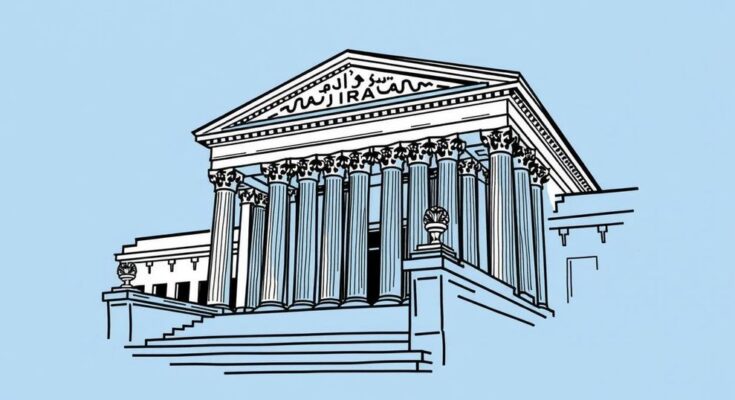Argentina’s Supreme Court has ordered former President Cristina Fernández de Kirchner and others to stand trial for a 1994 memorandum with Iran linked to the AMIA bombing, following appeals that rejected her earlier acquittal. This case, initiated by allegations from late prosecutor Alberto Nisman, alleges she obstructed justice to benefit Iranian suspects.
On Thursday, Argentina’s Supreme Court mandated that former President Cristina Fernández de Kirchner, along with several co-defendants, stand trial concerning the controversial 1994 memorandum of understanding signed with Iran. This decision, which followed the dismissal of all defense appeals, upholds an earlier ruling from the Federal Criminal Cassation Court that overturned prior acquittals related to the bombing of the AMIA Jewish center, which resulted in 85 fatalities and over 300 injuries. The case stems from allegations made by late prosecutor Alberto Nisman, who contended that Kirchner had attempted to shield those implicated in the bombing.
The investigation into the AMIA bombing, Argentina’s deadliest terrorist incident, has been a prolonged and complex legal matter entwined with political implications. In 2013, President Kirchner’s administration signed a memorandum with Iran that was criticized for potentially obstructing the investigation into the attack. Nisman’s accusations specified that the memorandum aimed to ease the impediments posed by Interpol notices against Iranian suspects in exchange for economic advantages. The circumstances surrounding Nisman’s death, shortly before he was scheduled to present his allegations, only intensified national scrutiny and controversy.
The Supreme Court’s ruling reflects a significant development in the ongoing judicial proceedings surrounding the AMIA bombing case. By overturning prior acquittals, the court has reignited scrutiny over the actions of former President Fernández de Kirchner and her government’s dealings with Iran. As the trial commences, it underscores the challenging intersection of justice and political accountability in Argentina’s complex history surrounding the AMIA attack.
Original Source: www.batimes.com.ar




